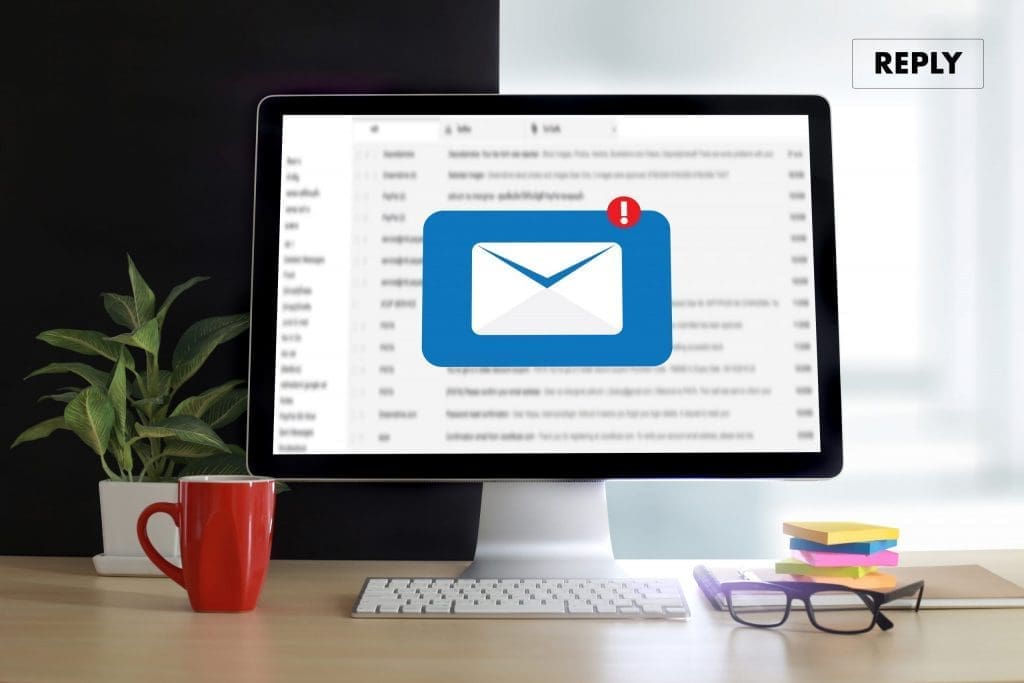Getting a letter of recommendation is more than just a requirement—it’s an essential skill that can set you apart in the college admissions process and beyond.
Why?
A strong letter of recommendation can provide a personal perspective on your strengths, accomplishments, and character that grades and test scores alone can’t convey. Learning how to ask for one is a skill that will serve you well, not just in college applications but throughout your academic and professional career. So, you might as well master the skill now!
This article is your go-to guide for securing stellar letters of recommendation from teachers and mentors. Whether you need help with how to ask, how many letters you’ll need, or what to include in your request, we’ve got you covered. Plus, we’ll provide examples and templates to help you craft the perfect ask, making the process as smooth as possible.
Section 1: How to Ask for a Letter of Recommendation for College
Why do letters of recommendation matter?
Letters of recommendation give colleges insights into who you are beyond your transcript. They highlight your strengths, character, and how you’ve impacted your school and community. Therefore, it’s crucial to approach this request thoughtfully.
How Many Letters of Recommendation Will You Need?
Typically, colleges ask for two to three letters of recommendation. Some schools may require specific types, such as one from a teacher in a core subject and another from a counselor or extracurricular advisor. Always check each college’s requirements carefully to ensure you’re meeting their expectations.
Who Should You Ask?
Choose recommenders who know you well and can speak to your strengths. Ideally, select teachers from your junior or senior year, especially those who taught subjects related to your intended major. Counselors and mentors from extracurricular activities are also excellent choices.
When Should You Ask for a Letter of Recommendation?
The best time to ask is at the end of your junior year or the very beginning of your senior year. This gives your recommenders plenty of time to write a thoughtful letter without feeling rushed. Aim to ask at least four to six weeks before the deadline.
Review: Quick Tips
- Choose Your Method: A face-to-face request is always best, but if that’s not possible, a well-crafted email works too.
- Be Respectful: Start by expressing appreciation for their time and effort. They’re doing you a favor, after all!
- Provide Context: Let them know why you’re asking them specifically. Mention how their class or mentorship has impacted you and how it relates to your college goals.
- Make it Easy: Provide all necessary details, including deadlines, submission methods, and any specific points you’d like them to highlight.
- Follow-up: A gentle reminder a week or two before the deadline is helpful. Be sure to thank them again once the letter is submitted.

Section 2: Guidelines for Common App Letters of Recommendation
The Common Application is used by hundreds of colleges, and they all have slightly different requirements when it comes to letters of recommendation.
Here’s what you need to know:
Once you create an account, the Common App allows you to invite and manage recommenders directly through the platform. Colleges typically request one to two teacher recommendations and one from a school counselor.
Following the invitation, recommenders can upload their letters directly through the Common App. Ensure they have the correct instructions for each college, especially if some schools prefer letters via mail or another platform.
Teacher Recommendations:
Whenever possible, choose teachers who taught you in core academic subjects like Math, English, Science, or History. These letters should emphasize your academic abilities, work ethic, and contributions in the classroom.
Counselor Recommendations:
Your school counselor’s recommendation provides a broader picture of your high school career, including your academic achievements, extracurricular involvement, and personal development. Even in large high schools, it benefits students to start meeting with their counselors early on to help develop this relationship.
Supplemental Recommendations:
Some colleges allow or even encourage additional recommendations from coaches, employers, or other mentors. Make sure these letters add new perspectives rather than repeating what’s already covered by your teachers and counselor.
Ultimately, follow the instructions of the college applications closely when submitting. When in doubt, check the college’s website or contact a college admissions counselor for help!

Section 3: College Letter of Recommendation: 10 Sample Letter Requests
Crafting the perfect request can be challenging, so here are 10 sample letters you can use as inspiration:
1. Formal Email Request to a Junior Year Teacher
Subject: Letter of Recommendation Request
Dear [Teacher’s Name],
I hope this message finds you well. I am reaching out to ask if you would be willing to write a letter of recommendation for my college applications. Having been in your [Subject] class during my junior year, I deeply value the insight you have into my academic abilities and work ethic.
I don’t have a final list yet, but I know that I am applying to several colleges next year, and your perspective on my growth in your class would be invaluable. The deadline for submission will be [Date], and I can provide any additional information or materials you might need.
Thank you so much for considering my request. Your support would mean a great deal to me.
Best regards,
[Your Name]
[Your Contact Information]
2. Face-to-Face Request Template
Opening:
“Hi [Teacher’s Name], do you have a moment to talk?”
Request:
“I wanted to ask if you would be willing to write a letter of recommendation for my college applications. I really enjoyed your [Subject] class, particularly [your favorite memory or shared anecdote]! Because of this, I believe your insights into my academic growth and participation would provide a strong perspective for my applications.”
Follow-up:
“I understand this is a significant request, so if you need any materials or information from me, I’d be happy to provide them. The deadline is [Date], and I’ll make sure to give you plenty of time.”
Closing:
“Thank you so much for considering this. Your support would really mean a lot to me.”
3. Request for a Counselor Recommendation
Subject: Letter of Recommendation Request
Dear [Counselor’s Name],
I hope you’re doing well. I’m in the process of preparing my college applications and was wondering if you would be willing to write a letter of recommendation for me.
I believe your knowledge of my academic history, extracurricular involvement, and personal development over the past few years would be incredibly valuable to the admissions committees. The deadline for the recommendation is [Date], and I’d be happy to provide any additional details you might need.
Thank you so much for your time and consideration. I truly appreciate your support.
Warm regards,
[Your Name]
[Your Contact Information]
4. Request from an Extracurricular Advisor
Subject: Request for a Letter of Recommendation
Dear [Advisor’s Name],
I hope you’re having a great day! I’m reaching out to ask if you could write a letter of recommendation for my college applications.
Your mentorship in [Activity/Club] has had a significant impact on my personal and leadership development over the last [X Years], and I believe your perspective would greatly enhance my application. The deadline for submission is [Date], and I’d be happy to provide any additional information you need.
Thank you so much for considering this. Your guidance has meant so much to me, and your recommendation would be invaluable.
Best regards,
[Your Name]
[Your Contact Information]
5. Email Follow-Up Reminder
Subject: Friendly Reminder: Letter of Recommendation
Dear [Teacher/Counselor/Advisor’s Name],
I hope you’re doing well. I wanted to send a quick reminder about the letter of recommendation for my college applications. The deadline is approaching on [Date], and I just wanted to make sure you have everything you need from me.
If there’s anything else I can provide to assist, please don’t hesitate to ask. Thank you again for your support!
Warm regards,
[Your Name]

6. Request to a Teacher for a Specific College Program
Subject: Request for Letter of Recommendation for [College Program Name]
Dear [Teacher’s Name],
I hope this email finds you well. I am applying to [Specific College Program] at [College Name], and I wanted to ask if you would be willing to write a letter of recommendation on my behalf.
Your class in [Subject] was instrumental in shaping my interest in this field, and I believe your insights into my passion and skills would be particularly compelling to the admissions committee. The deadline for submission is [Date], and I’m happy to provide any additional information you might need.
Thank you so much for considering my request and for stoking my interest in this field. Your recommendation would mean a lot to me.
Best regards,
[Your Name]
[Your Contact Information]
7. Request from a Coach for an Athletic Program
Subject: Request for a Letter of Recommendation
Dear Coach [Coach’s Name],
I hope you’re doing well. As I prepare to apply for college, I am hoping you would be willing to write a letter of recommendation for my application, particularly highlighting my participation in [Sport/Team].
Your guidance over the past [Years] has been crucial to my development both on and off the field, and I believe your perspective on my teamwork, leadership, and dedication would greatly enhance my application. The deadline for submission is [Date].
Please let me know if there’s anything you need from me to assist in writing the letter. Thank you so much for your support!
Best regards,
[Your Name]
[Your Contact Information]
8. Request from a Mentor for a Scholarship Application
Subject: Request for Scholarship Recommendation Letter
Dear [Mentor’s Name],
I hope this message finds you well. I’m in the process of applying for the [Scholarship Name], and I was wondering if you would be willing to write a letter of recommendation on my behalf.
Your mentorship in [Area of Mentorship] has greatly influenced my growth, and I believe your insights would be invaluable to the scholarship committee. The deadline is [Date], and I can provide any additional details you might need.
Thank you so much for considering my request. Your support has always meant a great deal to me.
Warm regards,
[Your Name]
[Your Contact Information]
9. Request for a Last-Minute Letter (Only if Necessary)
Subject: Urgent Request for Letter of Recommendation
Dear [Teacher’s Name],
I hope you’re doing well. I apologize for the short notice, but I was wondering if it would be possible for you to write a letter of recommendation for my college application. The deadline is [Date], and I completely understand if this timing is not feasible for you.
If you’re able to assist, I can provide any information you need right away. Please let me know your availability, and again, I sincerely apologize for the urgency.
Thank you so much for considering my request. I appreciate your understanding.
Best regards,
[Your Name]
[Your Contact Information]
10. Thank You Email After Submission
Subject: Thank You for Your Recommendation
Dear [Teacher/Counselor/Advisor/Mentor’s Name],
I wanted to take a moment to sincerely thank you for writing my letter of recommendation. I truly appreciate the time and effort you put into supporting my college application.
Your support means a great deal to me, and I am so grateful to have had you as [a teacher/mentor/counselor]. I’ll be sure to keep you updated on my application process.
Thank you again for everything!
Warm regards,
[Your Name]
Bonus: Brag Sheet Style Resume Template
A brag sheet is a simple resume that highlights your achievements, extracurricular activities, leadership roles, and any other information that can help your recommender write a compelling letter. This template will guide you in organizing your brag sheet:
- Header: Include your name, contact information, and high school.
- Academic Achievements: List your GPA, test scores, and honors or awards.
- Extracurricular Activities: Detail your involvement, leadership roles, and key achievements.
- Community Service: Highlight your volunteer work and impact.
- Personal Attributes: Mention qualities like leadership, teamwork, and perseverance.
When in doubt, it’s best to prepare these materials and share them with your recommenders proactively so that you can get the most detailed letter possible.
Conclusion
Securing strong letters of recommendation can be a game-changer in your college admissions process. By asking the right people at the right time and in the right way, you’ll set yourself up for success. Remember to follow up, provide your recommenders with all the information they need, and thank them for their support.
Need more personalized guidance?
At Empowerly College Counseling, we specialize in helping students like you navigate every step of the college admissions process, from building your application to securing crucial letters of recommendation. Contact us today to learn how we can help you increase your odds of acceptance by up to 11x.

